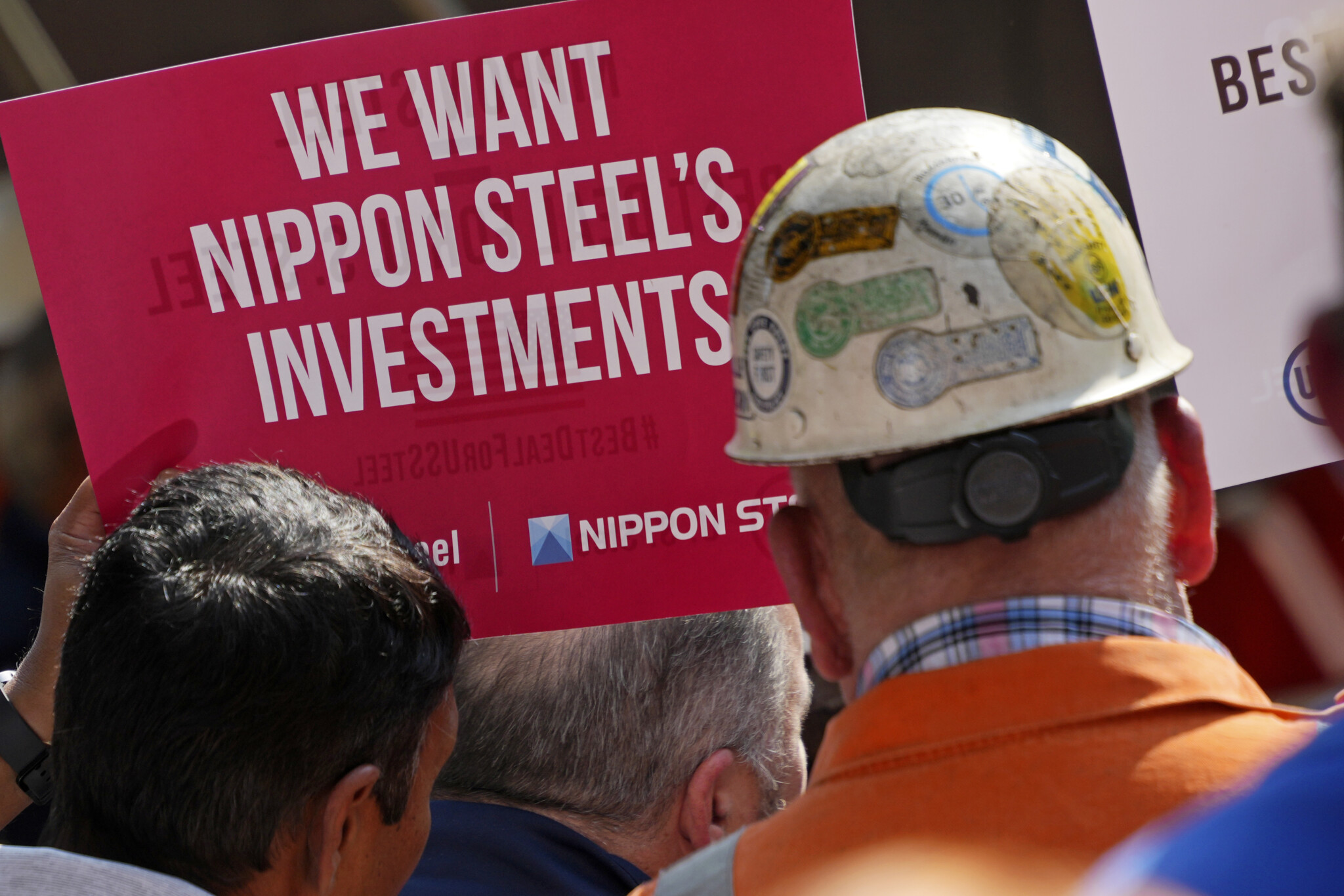Nearly a century ago on the 17th of January 1925, U.S. President Calvin Coolidge delivered a speech to the American Society of Newspaper Editors famously declaring: “After all, the chief business of the American people is business. They are profoundly concerned with producing, buying, selling, investing, and prospering in the world.” While that remains largely true, President Biden’s decision last week to bar Japan’s Nippon Steel from acquiring U.S. Steel is a development that should send shivers down the spines of allies, not least Canada.
If the business of the American people is business, U.S. Steel was once their standard bearer. Described by the company itself as “an American icon,” it was formed in 1901 by Andrew Carnegie, J.P. Morgan, and Charles Schwab. Companies like U.S. Steel were centrepieces of Franklin Roosevelt’s fabled “arsenal of democracy” in the Second World War. However, U.S. Steel—the company—like the U.S. steel industry generally, is now a shadow of its former self, and its proposed USD $14.1 billion takeover by Nippon Steel was aimed at staving off financial troubles and avoiding further downsizing and mill closures. President Biden blocked the deal using powers granted under U.S. foreign investment review laws to block inbound investment deemed a risk to national security.
His decision was not wholly surprising given that he, along with President-elect Donald Trump and Vice President Kamala Harris all expressed opposition to it during last year’s election campaign. No presidential candidate dared incur the wrath of voters in swing-state Pennsylvania where the steel industry and the United Steelworkers union retain political clout. The decision presents two paradoxes bearing consideration. First, Japan is a critical ally of the U.S. and, second, Biden’s decision came after November’s election when political consequences in swing states should count for less.
The foundations of the U.S. foreign investment review framework were largely conceived in the 1980s when Americans worried that “Japan, Inc.” was gobbling up iconic assets such as the Rockefeller Center and Pebble Beach Golf Club. To avoid accusations of protectionism, legislators empowered the Committee on Foreign Investment in the United States (CFIUS) to focus solely on national security concerns when reviewing inbound acquisitions. The problem is that “national security” is a malleable concept—although domestic steel production has much clearer implications for it than the investments spawning CFIUS’s creation in the first place.
It is ironic, though, that Japan is arguably now an even more critical ally of the U.S., owing to its central role in balancing a rising China. Successive Japanese governments have embraced this by increasing defence spending despite wariness among the Japanese public and former prime minister Shinzo Abe deliberately avoided getting into a trade war with the first Trump administration. Now, President Biden has said that Japanese investment capital is not welcome in certain parts of the U.S. economy—even those that are ailing and even after Nippon Steel reportedly offered governance concessions to get the deal approved, including giving the U.S. government an effective veto over future production capacity reductions.
For a country like Canada that has made nowhere near a similar effort on defence spending and where confrontation with the U.S. remains de rigueur in certain political and social circles, it is hard to see Canadian investors in a critical economic sector receiving more favourable treatment.

A rally by U.S. Steel employees is held outside the United Steel Tower in downtown Pittsburgh to display their support for the transaction with Nippon Steel Wednesday, Sept. 4, 2024. Gene J. Puskar/AP Photo.
The fact that this decision was made in the dying days of the Biden presidency should cause further concern. There are no more electoral votes in Pennsylvania to be won and yet protectionism and economic nationalism seemingly bridge the U.S.’s increasingly deep political divide. Fifteen years ago, I wrote my master’s thesis on how shifting global politics risked politicization and misuse of the CFIUS review process. In various interviews with senior U.S. government officials who had sat on CFIUS, the overarching message was that economic actors in government such as the Departments of Commerce and the Treasury would always be voices of openness to foreign investment in the face of wariness from the likes of the Department of Defense and the intelligence agencies.
Reports on the Nippon Steel decision indicate that Biden’s economic advisers such as U.S. Trade Representative Katherine Tai led opposition to the deal while those such as National Security Advisor Jake Sullivan wanted options for approval kept open.
Of course, U.S. Steel still needs an injection of capital to stay afloat and President-elect Trump has mooted subsidies and tax breaks as the solution, albeit adding billions more to the U.S. national debt and raising the prospect of companies in other economically unviable sectors with a national security nexus seeking similar government support. The risk is that, in time, the U.S. economy becomes more sclerotic and less innovative and competitive with inevitable implications for the global economy.
This is, to be fair, not an issue confined to the U.S. In 2021, the French government looked to use its powers to block foreign investment on national security grounds to stop Quebec’s Couche-Tard from acquiring the French grocery retailer Carrefour. But one almost expects protectionism from the French. It is an altogether different beast when the U.S. goes down that route.
There are those in Canada who look at the bluff and bluster of the incoming Trump administration and tell themselves, “This too shall pass.” In Biden’s decision on the Nippon Steel acquisition, they should find a wake-up call. There is bipartisan impetus for the U.S. to turn in on itself economically and to throw trusted allies under a bus while doing so. A century on from Coolidge’s observation, the business of the American people may still be business—but with many conditions attached.









